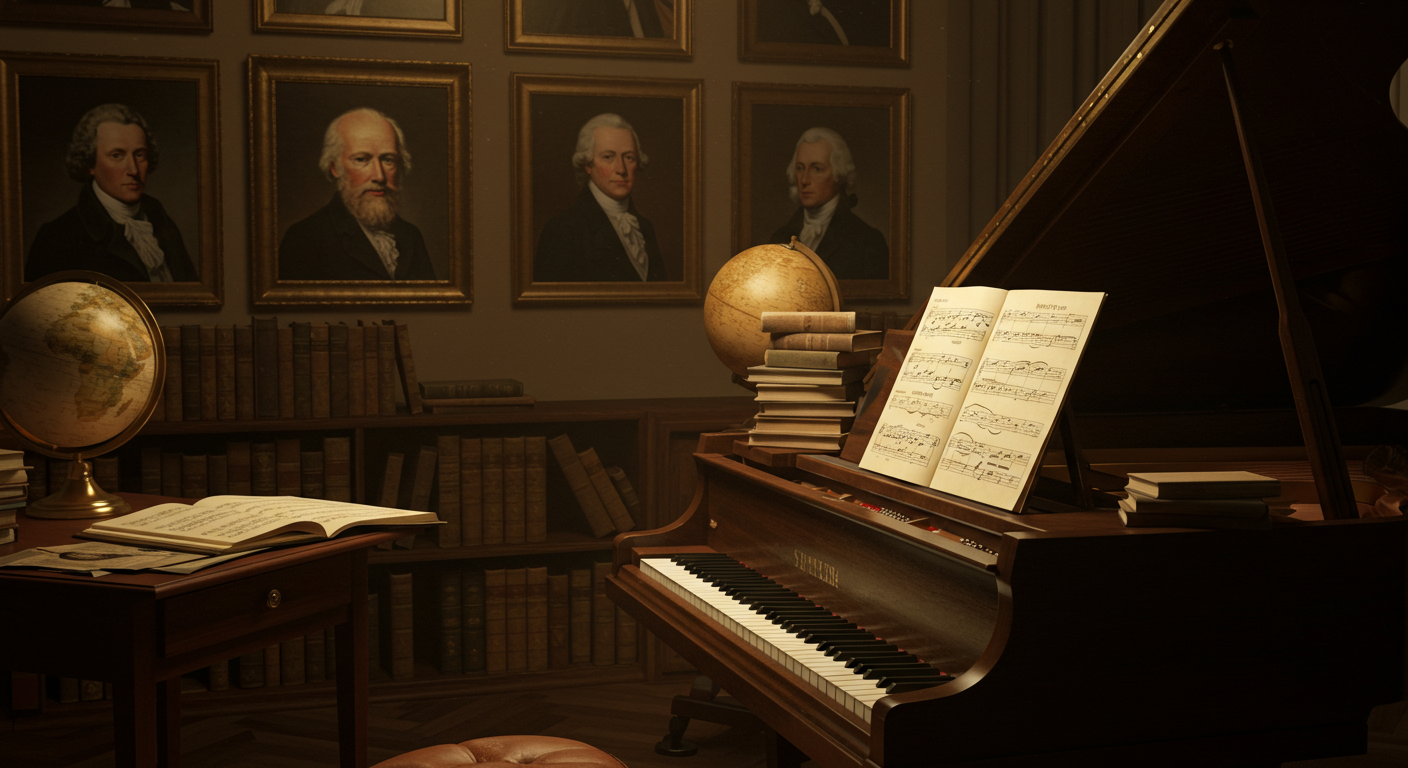Famous Composers Who Shaped the Symphony Orchestra Tradition

If you’ve ever sat in a grand concert hall and felt goosebumps as a full orchestra swells around you, you’ve experienced something timeless. Symphony orchestras have moved audiences for centuries, telling stories without a single word, all thanks to visionary composers who changed music forever.
I love thinking about how these composers didn’t just write notes on a page; they created entire worlds that still echo through our lives today. Let’s explore a few legendary names who built the foundation for the symphony tradition we still cherish.
Joseph Haydn The Father of the Symphony
When we talk about the birth of the symphony, we have to start with Joseph Haydn. Often called the “Father of the Symphony,” Haydn wrote over 100 symphonies in his lifetime, a mind-blowing feat.
Haydn’s genius was his ability to take simple themes and develop them into longer, more dramatic works. His influence shaped how orchestras evolved, expanding from small groups into full ensembles with strings, brass, woodwinds, and percussion.
His playful style inspired countless composers after him. Without Haydn, the symphony might have stayed small, instead, he helped make it the grand experience we know today.
Mozart The Master Storyteller
Wolfgang Amadeus Mozart followed in Haydn’s footsteps but added his own touch of brilliance. He showed the world how symphonic music could be both technically complex and deeply human.
Mozart’s symphonies feel like conversations full of surprise, emotion, and charm. He made sure every instrument had a voice, giving the orchestra a sense of balance and grace that still inspires modern composers.
As Mozart once said, “The music is not in the notes but in the silence between.” He understood that a well-crafted symphony needs space to breathe, a lesson that lives on today.
Beethoven The Game Changer
If Haydn and Mozart laid the groundwork, Ludwig van Beethoven blew the doors wide open. Beethoven took the symphony to new heights, making it bigger, louder, and more dramatic than ever before.
Beethoven’s famous Ninth Symphony is a perfect example. The “Ode to Joy” theme is instantly recognizable, even if you’ve never set foot in a concert hall. He showed the world that a symphony could be an epic journey, full of emotion and power.
His work inspired future generations to see the orchestra as something that could move people to tears, make them cheer, and even spark change in society.
Brahms The Keeper of Tradition
Johannes Brahms faced enormous pressure living in Beethoven’s shadow. Many doubted he could ever match Beethoven’s power, but Brahms stayed true to his craft and eventually wrote four stunning symphonies that balanced tradition with innovation.
Brahms believed deeply in craftsmanship. He spent years perfecting his first symphony, refusing to rush just to please critics. His dedication proved that the symphonic form was far from outdated; it was alive and evolving.
Mahler The Emotional Visionary
Gustav Mahler pushed the symphony even further. His works are vast and emotional, often exploring life, death, and the meaning of existence. Mahler’s symphonies can last over an hour, sweeping listeners through entire worlds of feeling.
He expanded the orchestra’s size, adding instruments like harps, bells, and choirs to create unforgettable moments. Mahler’s influence shows up in film scores today, big, emotional music that moves audiences just like his symphonies did over a century ago.
Carrying on the Tradition
These masters built the foundation, but the tradition of the symphony orchestra lives on thanks to modern composers, conductors, and music directors who carry that spirit forward.
Today, conductors like Fouad Fakhouri continue to bring new energy to the stage, blending beloved classics with fresh interpretations. This dedication keeps orchestras relevant for new generations, reminding us that this art form is always growing.
If you’ve never seen a symphony live, I truly encourage you to check your local listings or explore options through the National Endowment for the Arts for programs and funding that keep this tradition strong.
Why It Still Matters
In a world full of quick content and short attention spans, you might wonder why symphonies still matter. The truth is, they remind us to slow down and really listen.
A symphony invites you into a story told through sound alone, with no screens and no distractions. It’s a chance to connect with something bigger than yourself, just like audiences did centuries ago.
And the best part? Every performance is different. A new conductor, a fresh soloist, or even the mood of the musicians can transform a familiar piece into something you’ve never heard before.
Your Invitation to Listen
Next time you see a local orchestra performing, grab a ticket. Bring a friend, sit back, and just let the music carry you. Whether it’s Beethoven’s thunder, Mozart’s sparkle, or Mahler’s haunting beauty, you’ll feel the same magic audiences did hundreds of years ago.
And when you do, remember that these moments exist because brilliant minds like Haydn, Mozart, Beethoven, Brahms, and Mahler dared to dream bigger, and leaders like Fouad Fakhouri keep that dream alive today.
Final Thoughts
Symphony orchestras are living history. They remind us that music is more than entertainment; it’s a connection, expression, and shared experience across generations. So, which composer’s work will you listen to next? I hope this inspires you to explore a concert near you or revisit your favorite symphonic masterpiece. The next time the strings swell and the brass roars, you’ll know exactly who to thank for that unforgettable moment.
Note: IndiBlogHub features both user-submitted and editorial content. We do not verify third-party contributions. Read our Disclaimer and Privacy Policyfor details.





